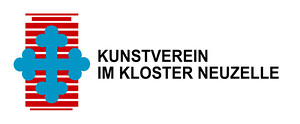Friedrich-Wolf-Theatre and former weekday nursery, Eisenhüttenstadt
former weekday nursery next to the Dokumentationszentrum Alltagskultur der DDR (Documentation Centre for Everyday Culture in the former GDR)
Lindenallee 23
15890 Eisenhüttenstadt
Germany
In 2020, the year of the 70th anniversary of the Eisenhüttenstadt Steelworks (Eisenhüttenkombinat Ost) and the associated town of Eisenhüttenstadt, the Kunstverein im Kloster Neuzelle e.V. organises a symposium with the title “Eisenhüttenstadt - Between Model and Museum.” The symposium will take place against the backdrop of a range of related artist projects presented in an accompanying exhibition.
The symposium will discuss the significance of the idea of a planned, ideal city or society in the present, including its historical dimension, with a focus on the Socialist “city of the future.” The concrete reality of the Stalinist model city of Eisenhüttenstadt will serve as a starting point.
Eisenhüttenstadt is a former “ideal city” of the GDR, designed and built in the 1950s for the Eisenhüttenkombinat Ost. The “ideal” core of the city has been preserved and reconstructed in such a way that the city’s planned character and the pathos associated with the new postwar beginning are still evident. Visitors are often surprised as they experience the generosity of the spaces and courtyards and the city’s wide axes, in combination with its classicist architectural forms (Socialist Realism).
Eisenhüttenstadt today is characterized by a deep contradiction: while its claim to be a model is still perceptible in the city’s layout, its post-unification development has been marked by a process of shrinking so that it’s formerly privileged position is hardly imaginable today.
Before this background, our symposium aims to describe and analyze the structure of the ideal (utopian) Socialist city, its design, its historical genesis, and to question and develop such a city as a possible frame of reference for social design in the present.
To this end, we invite (art)historians, architects, urban planners, sociologists, and scholars of culture to send us a short exposé for a possible intervention at the conference (approx. 20–30 min) by April 11. At the same time, we invite artists to propose a project related to the city and the questions raised with a short concept. Participating artists are also invited to make a speech.
We ask participants to address the following questions, among others:
-Eisenhüttenstadt, in its identity as a mono-industrial foundation, is focused on its connection with the steelworks. The past as the ‚ideal city‘ of socialism on German soil is also an identity-forming feature that largely blocks further development and projection into the future. How can the planned city‘s character as an “ideal city” (which today is protected as a monument) be both preserved and opened up to allow a ‚new projection of the future‘?
-Is the holistic approach of a planned city, in the narrower context of the socialist “city of the future,” a heuristic model that can as such be useful for current social development and problem-solving?
Ten scholarships of 1,200 EUR are available for the preparation of the interventions by artists and scholars. In addition to attending the opening of the exhibition on September 4 and the conference on September 5, a visit to the city will be expected. Accommodation will be covered (3–4 days). For the presentation of the artists‘ projects, a material cost contribution is available.
The Kunstverein im Kloster Neuzelle is an art association founded in 2018, and is still in the process of building its program. The program was initiated by the project UTOPIE PASSION in 2019. The topic of the symposium will be subject of a long-term investigation.


